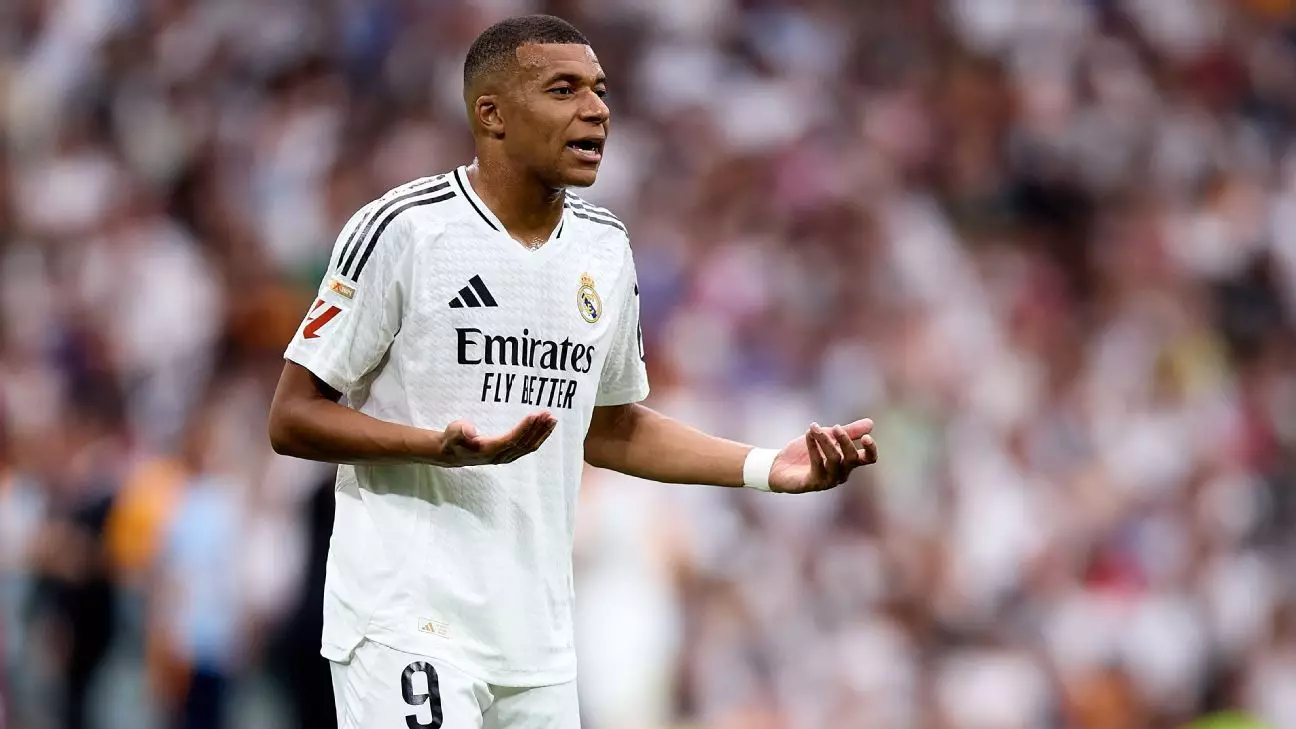In modern football, the balance between national duty and club obligations has become increasingly controversial, particularly when it comes to star players. A recent incident involving Kylian Mbappé, Didier Deschamps, and Real Madrid exemplifies this tension, highlighting the intricate relationships between national coaches, players, and clubs. The incident raises critical questions about athlete priorities, public perception, and media scrutiny.
Mbappé, France’s captain and one of the sport’s brightest talents, was sidelined due to a thigh injury sustained during a LaLiga match against Alavés. Initial reports indicated that he would be out for around three weeks, leading to his omission from the French squad for the upcoming international matches against Israel and Belgium. However, in a turn of events that has drawn eyebrows, Mbappé re-emerged for Real Madrid, playing as a substitute against Lille and then starting against Villarreal. This decision sparked criticism back home, with many claiming that he was prioritizing club commitments over his national responsibilities.
The dual commitments of elite players can often create a fracture, as they navigate the expectations of coaches and fans alike. Deschamps, during a press conference, emphasized that he made the choice to exclude Mbappé based on the information available to him at the time. He reiterated that his decision was grounded in the player’s fitness over any alleged pressure from his club, highlighting a recurring narrative where players find themselves balancing conflicting commitments.
Deschamps’ stance on Mbappé’s absence is significant as it underscores the philosophy that national team coaches must adopt when working with high-profile players. He stated explicitly that the player was not at full capacity during the Villarreal match, indicating concern for both the player’s well-being and the team’s overall performance. In a world where player availability can drastically impact the outcomes of international fixtures, the rationale for a coach’s decisions is paramount.
Yet, this scenario reflects a broader trend in football where the decisions of national coaches are often under intense scrutiny. Critics voice concerns when selections appear inconsistent or when a star player is left out due to injury, especially if that player quickly returns to club action. Such situations can create friction not just between clubs and national teams but also within the fan base as allegiances and priorities are questioned.
Midfielder Aurélien Tchouaméni, a teammate of Mbappé at both Real Madrid and the French national team, voiced support for the latter, dismissing notions of club pressure. He emphasized physical concerns for Mbappé, which further complicates the narrative. This dynamic illustrates the challenges players face in reconciling their commitments to club vs. country, a recurring conversation in the footballing world.
There is a tangible concern that clubs may inadvertently or deliberately exert pressure on their players regarding international duties. However, Tchouaméni’s comments push back against this idea, suggesting that the choice ultimately rests with the players regarding their availability. This division of responsibility raises critical ethical questions about how players prioritize their commitments and the broader implications of player welfare in high-stakes environments.
As if the controversy surrounding Mbappé’s commitment to the national team weren’t enough, the players’ arrivals for international duty have also ignited media scrutiny. Players like Liverpool’s Ibrahima Konaté have drawn criticism for their choice of attire, with some commentators labeling such situations a “circus.” This commentary reflects a growing impatience among former players and pundits regarding what they perceive as a lack of respect for the national team.
In an age where social media amplifies every image and statement, players face mounting scrutiny not only for their on-field performance but also for their off-field demeanor. Responses from players, like those of Barcelona’s Jules Koundé, who defended their peers against media criticisms regarding their fashion choices, illustrate a growing tension between public expectations and personal expression.
As football continues to evolve, the relationship between club and country will remain a pivotal narrative in the sport. With increasing commercialization and fierce competition at club levels, players may find it necessary to reevaluate their allegiances. Coaches like Deschamps must find a way to navigate these complexities, ensuring that their decisions align with both player health and national pride.
Ultimately, the issues arising from situations like that of Kylian Mbappé highlight the delicate balancing act that defines modern football. As the sport continues to grow and adapt, the dialogue surrounding national duties and club influences will likely remain a polarizing topic, reflecting the evolving nature of football in the global landscape. The onus will be on players, clubs, and national teams to bridge these divides, fostering an environment where both can thrive without sacrificing the integrity of the beautiful game.

